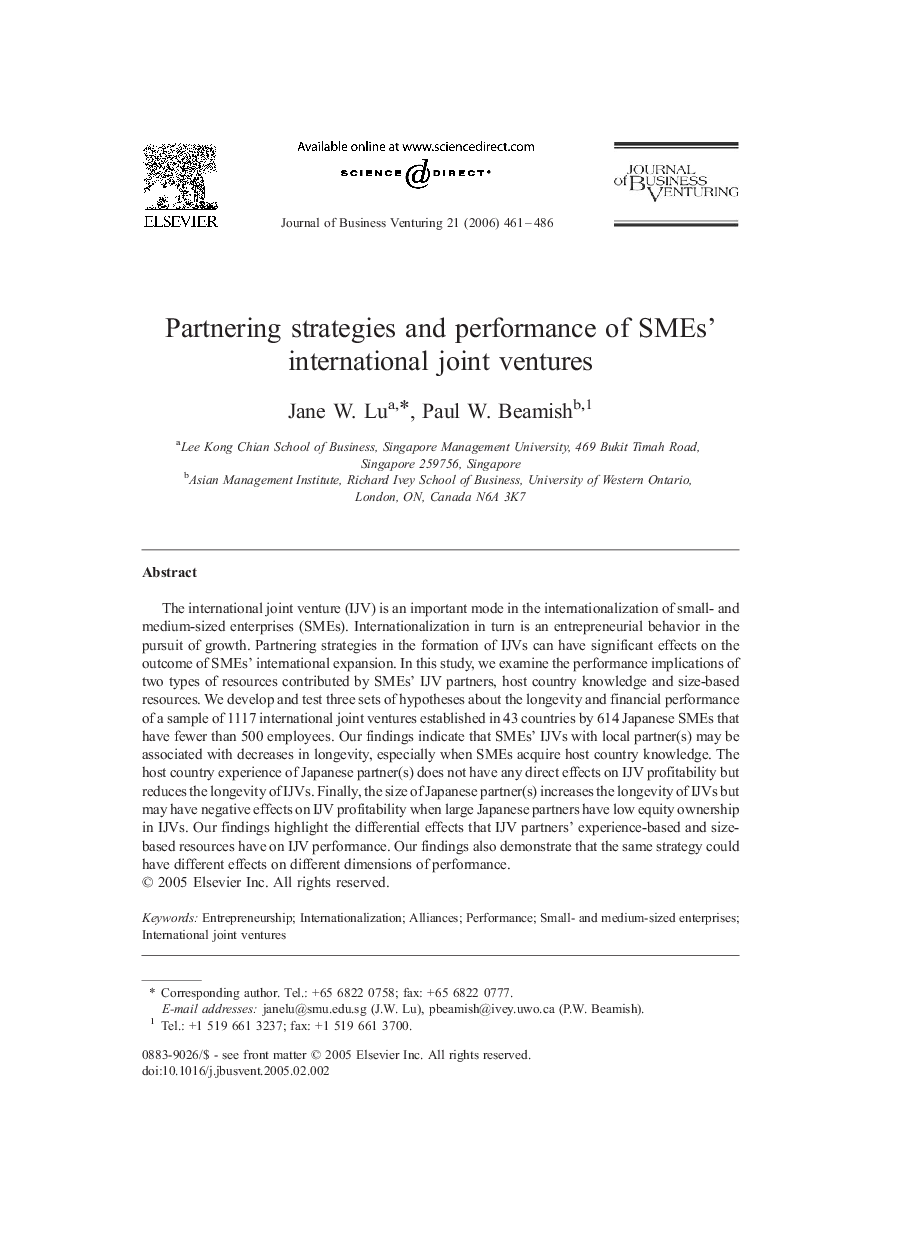| Article ID | Journal | Published Year | Pages | File Type |
|---|---|---|---|---|
| 1019678 | Journal of Business Venturing | 2006 | 26 Pages |
The international joint venture (IJV) is an important mode in the internationalization of small- and medium-sized enterprises (SMEs). Internationalization in turn is an entrepreneurial behavior in the pursuit of growth. Partnering strategies in the formation of IJVs can have significant effects on the outcome of SMEs' international expansion. In this study, we examine the performance implications of two types of resources contributed by SMEs' IJV partners, host country knowledge and size-based resources. We develop and test three sets of hypotheses about the longevity and financial performance of a sample of 1117 international joint ventures established in 43 countries by 614 Japanese SMEs that have fewer than 500 employees. Our findings indicate that SMEs' IJVs with local partner(s) may be associated with decreases in longevity, especially when SMEs acquire host country knowledge. The host country experience of Japanese partner(s) does not have any direct effects on IJV profitability but reduces the longevity of IJVs. Finally, the size of Japanese partner(s) increases the longevity of IJVs but may have negative effects on IJV profitability when large Japanese partners have low equity ownership in IJVs. Our findings highlight the differential effects that IJV partners' experience-based and size-based resources have on IJV performance. Our findings also demonstrate that the same strategy could have different effects on different dimensions of performance.
